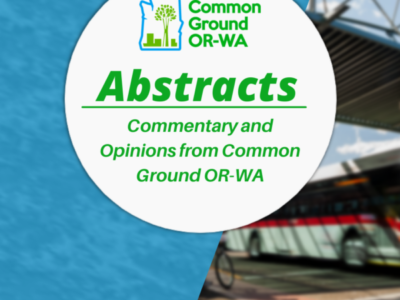How a 1996 ballot initiative skewed the Portland-area tax burden, and why anti-taxer Bill Sizemore got it wrong. Read on…
Tax Breaks for Gentrifiers: How a 1990s Property Tax Revolt Has Skewed the Portland-Area Tax Burden
By Elliot Njus
[email protected]
Sept 11, 2015
The Oregonian
Oregon’s property tax system has dramatically distorted the tax burden in the Portland area, an analysis by The Oregonian/OregonLive found, pushing responsibility for basic government services off the backs of one set of homeowners and onto others.
Swaths of North, Northeast and Southeast Portland are getting tax breaks while homeowners in east Portland and Southwest Portland pick up the bill. In Clackamas County, many Lake Oswego residents see major savings while 58 percent of the county’s homeowners pay more than their share based on home values.
The culprit: ballot measures voters approved in the mid-1990s to slow soaring property tax bills. That’s when Oregonians moved away from the traditional standard of taxation in which the amount you pay depends on how much your home is worth.
Oregon voters’ tax revolt began in 1990 with Measure 5, which limited property taxes to 1.5 percent of a home’s value. In 1996, ballot-initiative activist Bill Sizemore put Measure 47 on the ballot (later updated to Measure 50). His measure rolled back property tax assessments to 1995 levels minus an additional 10 percent. Annual increases would be limited to 3 percent a year. “My motivation was to help people stay in their homes and not be taxed out of them.”
Other states have limited increases in taxable values, too. But Oregon took things further. It remains the only state in which assessed values don’t reset to market value each time a property is sold. “The California measure created enormous savings for taxpayers,” Sizemore said. “But resetting created great inequities (within) neighborhoods.” Sizemore thought neighbors with similar homes should have similar property tax bills. In California, where assessed values reset each time a property changes hands, a longtime resident can have much lower property values than a neighbor who just moved in.
Oregon’s system has created great inequities of a different kind, concentrating benefits in gentrifying neighborhoods that have seen fast-rising home values. Other parts of the metro area have seen their relative tax burdens increase.
“We’re pricing people out,” said Kimura, the east Portland neighborhood activist. “It’s hard enough for people to come up with down payments and all this stuff. And then to come up with a $2,000 tax bill? And somebody else’s property tax is basically 50 percent of that?”
The Northwest Economic Research Center at Portland State University found that in Portland, properties getting a tax benefit tend to sell for a premium: a dollar of tax savings can amount to an average increase of $33 in sales price.
Sizemore, who this summer left Oregon to live closer to family in Idaho, said the inequities in today’s property taxes were foreseeable but couldn’t be avoided without completely upending the system.
“If I was to do what I wanted, I would have gotten rid of property taxes altogether,” Sizemore said. “I think they’re the most regressive tax we have because they have no relation to income.”
Comment:
Bill Sizemore, mastermind of the most convoluted and broken property tax system in the U.S., says:
1- “My motivation was to help people stay in their homes and not be taxed out of them.”
2- “Neighbors with similar homes should have similar property tax bills.”
3- “I think they’re the most regressive tax we have because they have no relation to income.”
Seriously?!
Well, the Frankentax system we got from M5 & M50 did achieve the first objective – for the most affluent homeowners. Never mind the folks in East Portland who take up the slack paying disproportionately higher tax bills.
Shall we just punt on the second objective? – after all, those inequities simply “couldn’t be avoided”. Though it’s not as if some economists didn’t raise a warning sign when M-50 was being pushed through to the ballot.
Now the third statement is nonsense. First, it’s true the property tax is not a tax on income; it is a wealth tax. In the aggregate, most of the growth in residential real estate value is in the land. This value exists because of locational advantages – either natural (like river views) or public investments in infrastructure and amenities. The wealth created is “unearned”. If local government has any claim on private property, it’s that land value – the speculative value that individual owners did nothing to create. Building values, on the other hand, are rightfully retained by owners because this value represents the capital they themselves invested.
If, as Sizemore asserts, the property tax is not related to income, that’s a good thing. For most working people income is wages; taxing wages is a drag on the economy. An income tax is not as regressive as a sales tax, but a wealth tax is better. That is why throughout history, economists have advocated such a tax – the land value tax. Adam Smith said “nothing [could] be more reasonable”. Milton Friedman said it was “least bad tax”. It is in fact also the least regressive tax, not the “most regressive”.
There are positive outcomes when the property tax is calculated on true market assessments and the tax base is limited to the value of land. This will dampen land price inflation, making the cost of housing more affordable.
The 2019 legislative session is not far off… time to finally do away with this ill-conceived tax system and replace it with a tax that is fair and produces positive economic effects.



